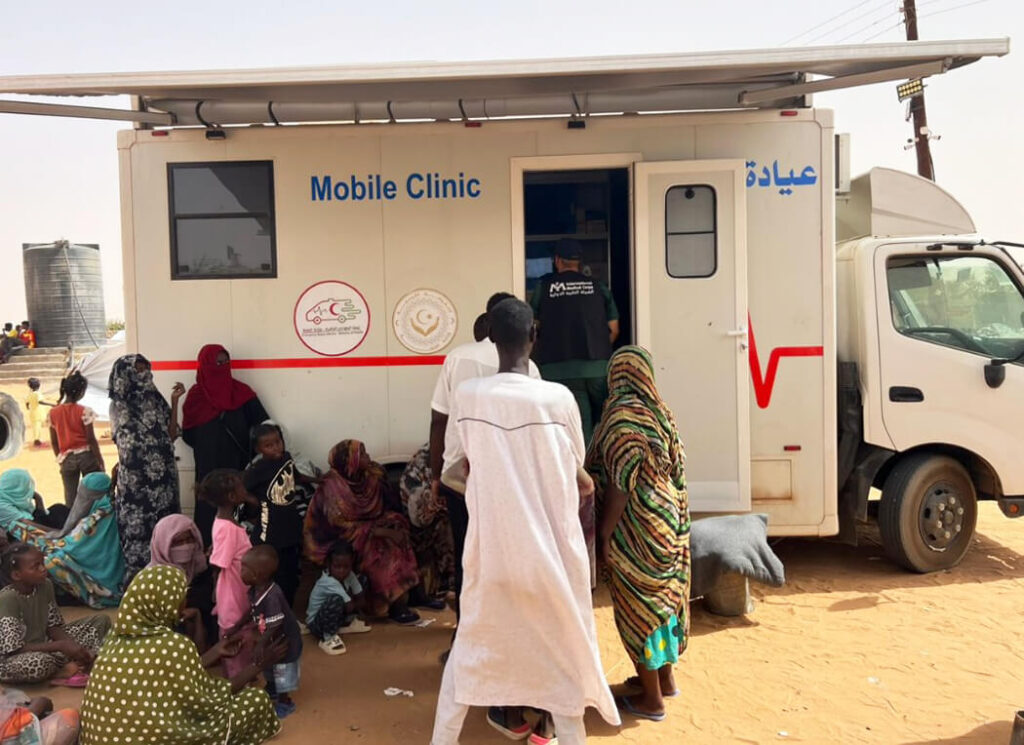When Sudan erupted in civil war in mid-April 2023, Sudanese civilians fled to neighbouring countries, desperately searching for safety. Since then, more than 250,000 Sudanese refugees have arrived in Libya, with about 160,000 settling in Kufra—a city about 150 miles from the Sudan–Libya border. Many of these refugees, who live in overcrowded, informal settlements, suffer from chronic health conditions made worse by inadequate shelter, limited mobility and poor access to healthcare.
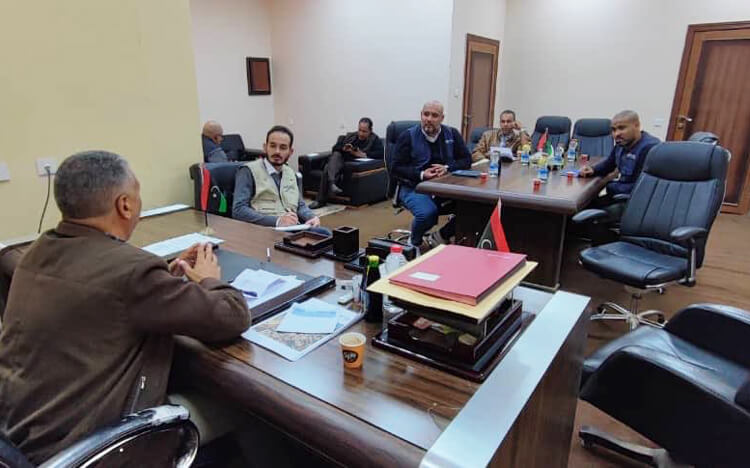
“When we saw that the humanitarian situation in Kufra was worsening, we reached out to the Libyan Ministry of Health to see how we could best help the refugees and host community,” explains Talal Burnaz, International Medical Corps’ Country Director in Libya. “We assessed the needs in the area, and then deployed our first mobile medical team—which included a nurse, doctor and pharmacist—with the supplies they needed to provide primary healthcare services and refer specialised cases to local hospitals.”
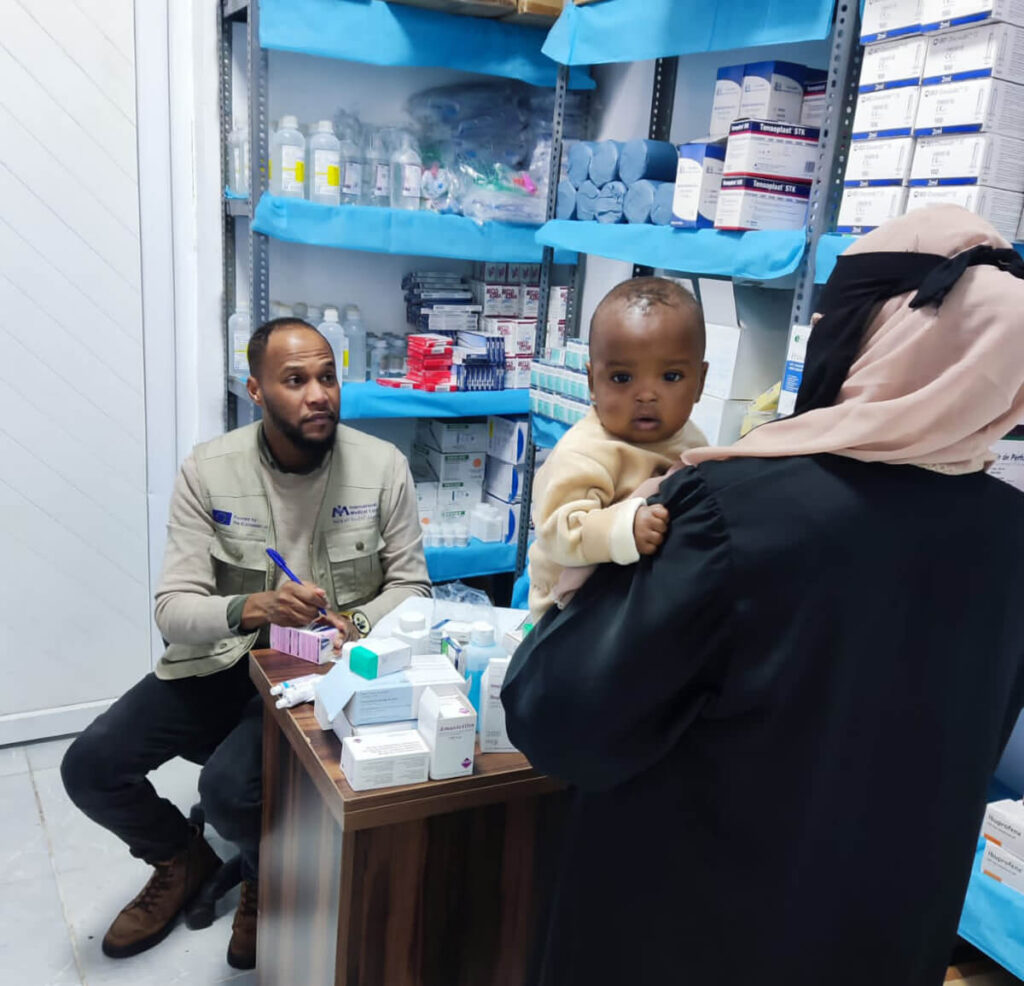
International Medical Corps now operates two mobile medical teams in Kufra, which provide lifesaving services to refugees and residents of the host community. Working closely with the local government, our team has so far provided more than 27,000 medical consultations.


Saadia Adam Taqil is a 61-year-old Sudanese mother of 13 who suffers from diabetes. Saadia and her family fled their home in Sudan due to the conflict and settled in Alazoumi Farm, an informal settlement in Kufra where many Sudanese refugees live. Living in difficult conditions, Saadia’s diabetes worsened, with a serious infection leading to the amputation of her left foot. Tragically, her right foot also became infected shortly thereafter, raising the risk of a second amputation.
“I had already lost one foot,” Saadia explained. “I feared I would lose the other. I couldn’t bear the thought of being completely dependent.”
When an International Medical Corps mobile medical team came to Alazoumi Farm, a community health worker told them about Saadia and her condition. They visited her shelter and quickly recognised the severity of her infection and the urgent need for specialised care. Her case was immediately prioritised, and she was enrolled in International Medical Corps’ chronic disease follow-up and wound-management programme.
Hakimah Ali Badr, an International Medical Corps nurse with expertise in diabetes-related wounds, began providing regular dressing changes, infection-control support and personalised counselling. Through a holistic approach combining wound care and psychosocial support, Hakimah and her team were able to stop the progression of the infection and save Saadia’s right foot.
“With patience, daily care and encouragement, we managed to control the infection,” Hakimah explained. “I’m proud to have helped Saadia walk again.”
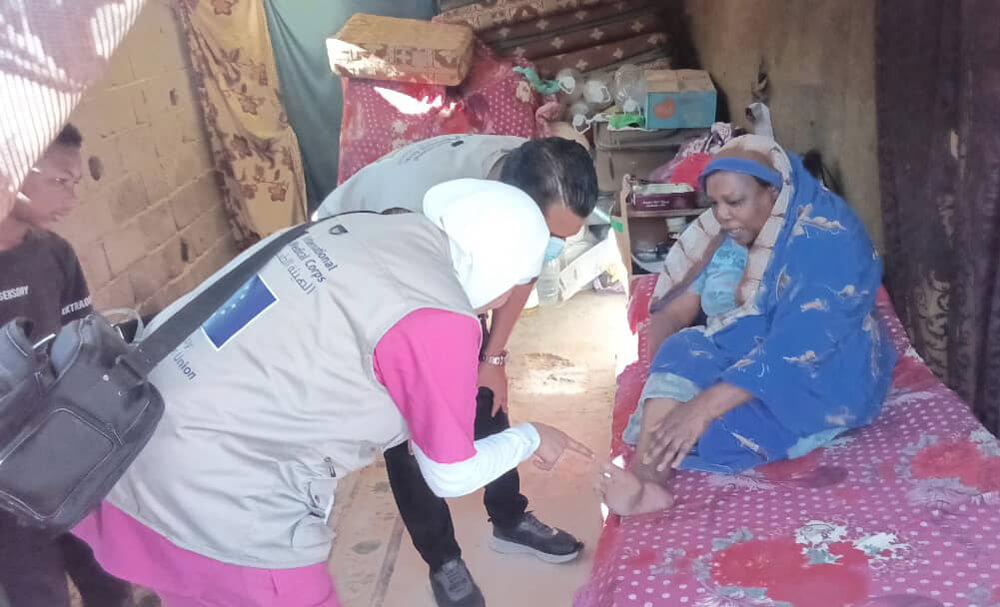
Today, Saadia is regaining mobility and confidence. She remains under regular care by our mobile medical team and serves as an example of resilience and recovery in the settlement.
“I’m grateful to Nurse Hakimah,” says Saadia. “Her care and encouragement gave me the strength to fight. Now I can walk again, even if slowly, and feel hopeful for the future.”
A.C.* is a 20-year-old Sudanese woman living in Kufra. She recently arrived in Libya after a long and exhausting journey. When we met her, A.C. was six months pregnant with her first child, and living with her husband in a fragile makeshift shelter constructed from palm leaves and cardboard. Without proper bedding or basic necessities, she suffered from extreme fatigue, stress and poor nutrition.
One day, A.C.’s husband found her unconscious in their shelter. Thankfully, our mobile medical team was nearby, conducting a routine field visit. Her husband rushed to our team, asking them to please come to his shelter and help his wife.
Hakimah and Dr. Fakhri Saeed Mohammedi, another member of International Medical Corps’ mobile medical team, responded immediately. When they reached A.C., she had critically low blood pressure and signs of dehydration. With great difficulty, due to the cramped living space, they conducted an emergency assessment, administered IV fluids and continued to monitor her condition.
“It was difficult to get past the palm leaves and into the shelter,” Hakimah explains. “It was so cramped, we could barely stand. But we knew time was critical.”
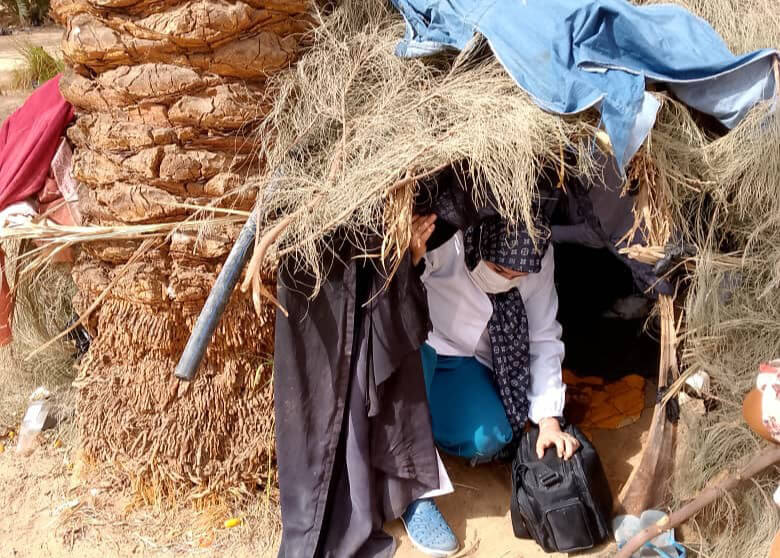
After A.C. regained consciousness and began speaking with the team, Hakimah and Dr. Fakhri referred her to a maternity centre in Kufra for further care. The team also arranged lab tests and counselling, ensuring continued follow-up.
“When we arrived, she was unconscious and couldn’t move,” says Dr. Fakhri. “Just hours later, she was awake and smiling. That’s why we do what we do.”
Learn more about our work in Libya, and donate to International Medical Corps today to help people around the world affected by conflict, disaster and disease.
*Not her real name.
